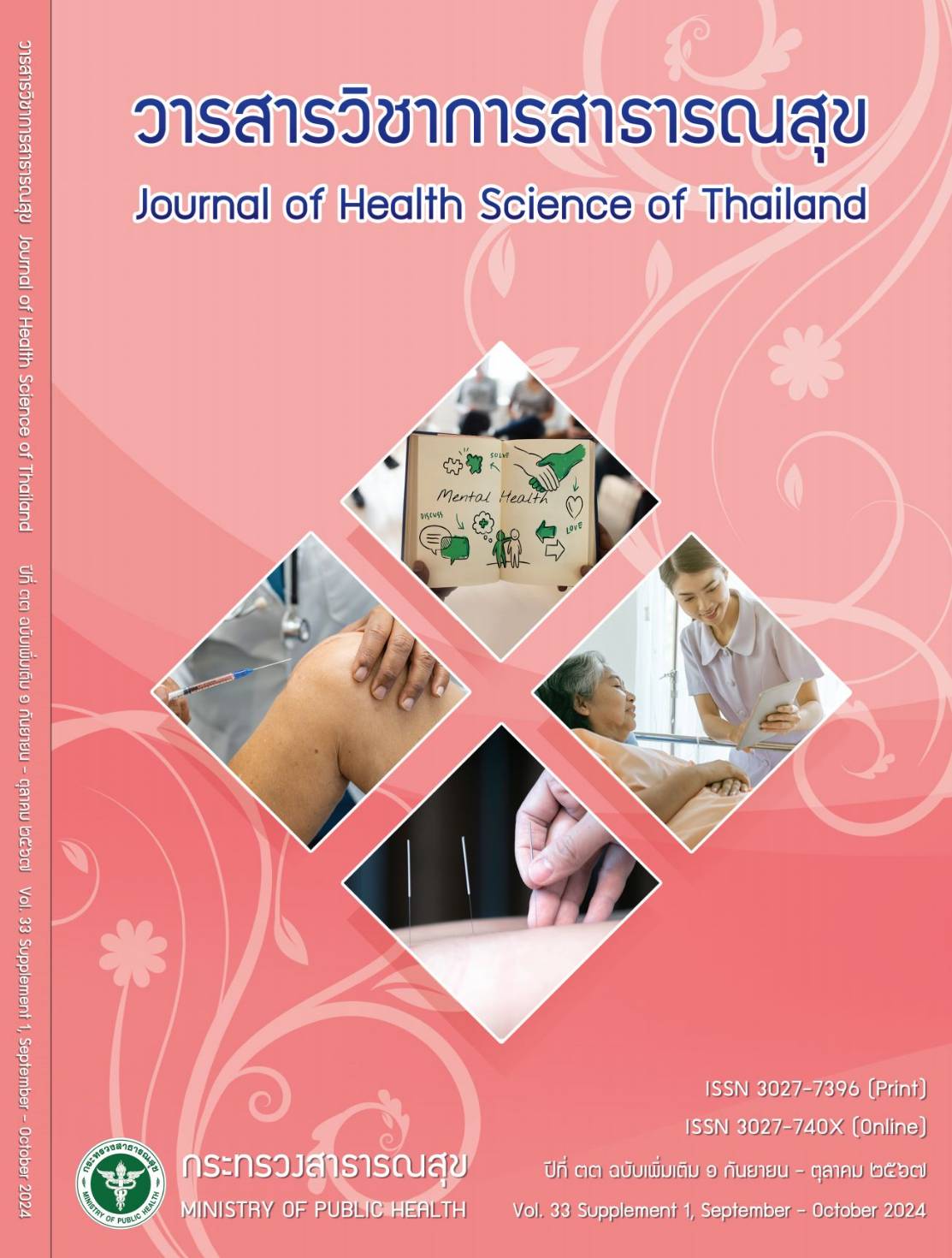Development of a Public Health Emergency Management Model for the First Emerging Disease Case in Nakhon Pathom Province
Keywords:
knowledge development model, emerging diseases, disease controlAbstract
The objective of this study was to develop a knowledge package for the management of health
emergency situations at provincial level, which could be useful for administrators and implementers to
use as management guideline in the events of emerging public health situations. The study was conducted
using a research and development approach, divided into four phases: situation assessment, development
of management package, implementation, and evaluation. The research led to the creation of a new
2P1D2R model, which includes the following components: Prevention and mitigation: assessing the
situation, monitoring developments, communicating, publicizing, updating knowledge, and sharing factual
information with the public. Preparedness: developing networks, communicating surveillance guidelines,
rehearsing plans, preparing ICS systems, laboratories, patient care facilities, determining management
guidelines for at-risk contacts, and establishing a system for accurate and rapid reporting. Detection: all
public and private hospitals are equipped to conduct surveillance, screening, and detection of emerging
diseases, involving close supervision, rapid diagnosis, and laboratory confirmation. Response: establishing
a response center, procuring and managing resources, coordinating the mobilization of medical and
public health personnel, and organizing a rapid mobile surveillance and investigation system to
effectively control the disease. Recovery: focusing on rehabilitating the mental health of infected individuals
and their relatives, aiding them in returning to normal life with support from mental health teams. The
satisfaction assessment of the approach indicated a high level of satisfaction, suggesting
that it could serve as a model for other provinces facing similar emerging disease crises
in Thailand. The recommendations include promoting the ICS (incident command
system) curriculum, increasing laboratory capacity for disease detection across health districts,
and providing continuous training on disease surveillance, investigation, and control for
provincial-level implementers.
Downloads
Downloads
Published
How to Cite
Issue
Section
License

This work is licensed under a Creative Commons Attribution-NonCommercial-NoDerivatives 4.0 International License.







